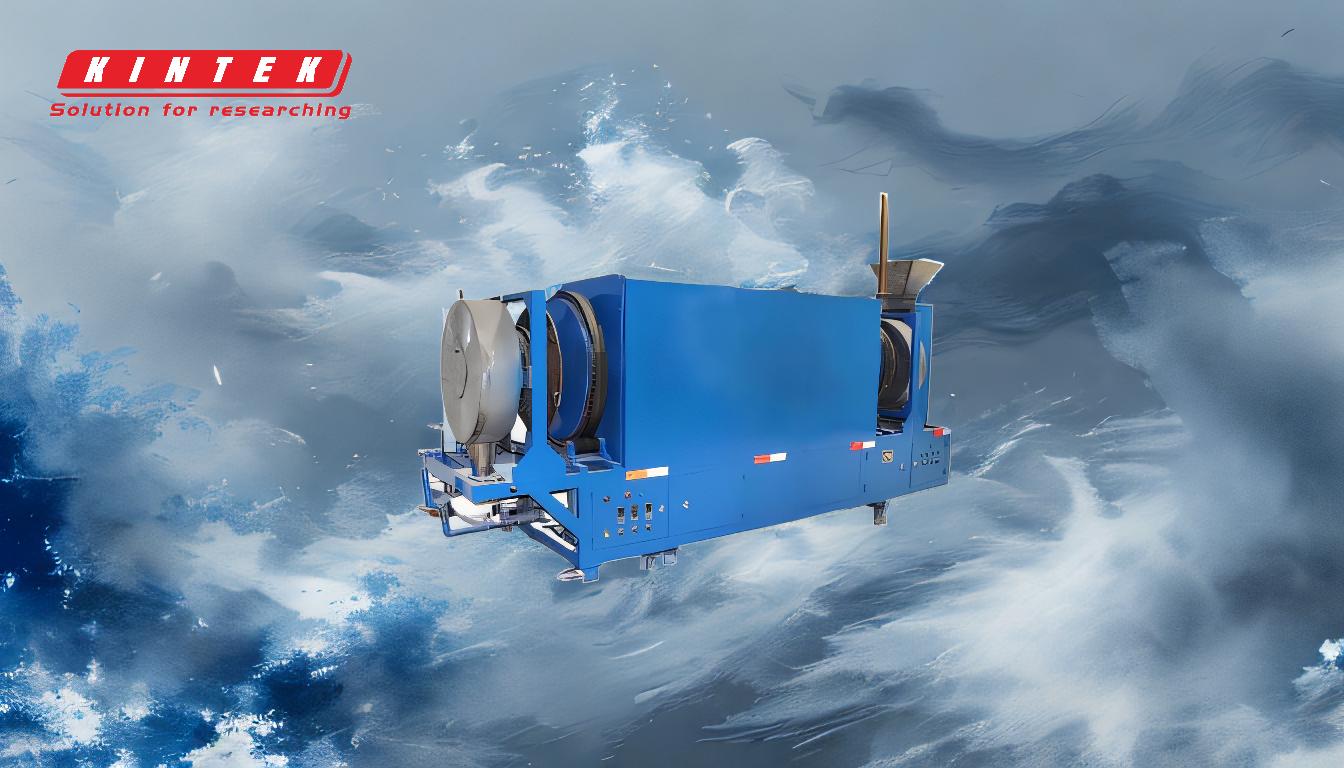Tyre pyrolysis is a process that thermally decomposes used tires in the absence of oxygen, transforming them into valuable byproducts such as carbon black, pyrolysis oil, steel, and syngas. These products have diverse applications across industries, including manufacturing, energy generation, and environmental management. The process is environmentally friendly, as it recycles 100% of the tires and reduces waste while producing high-value materials. Tyre pyrolysis contributes to renewable energy production, waste management, and resource recovery, making it a sustainable solution for addressing the global challenge of tire disposal and resource scarcity.
Key Points Explained:
-
Production of Carbon Black:
- Carbon black is a primary product of tyre pyrolysis and has high application value.
- It is used in the manufacturing of tires, rubber products, inks, and asphalt modifiers.
- Its high yield and demand in industrial applications make it a significant revenue generator.
-
Generation of Pyrolysis Oil:
- Pyrolysis oil, derived from the process, can be refined and used as transportation fuel or in industrial applications.
- It serves as an alternative to fossil fuels, contributing to renewable energy sources and reducing dependency on non-renewable resources.
-
Recovery of Steel:
- The steel wires embedded in tires are recovered during pyrolysis.
- This steel can be recycled and reused in various manufacturing processes, reducing the need for virgin steel production and conserving resources.
-
Production of Syngas:
- Syngas, a mixture of hydrogen, carbon monoxide, and other gases, is generated during tyre pyrolysis.
- It can be used as a fuel for electricity generation, heat, or steam production, or further processed into biofuels.
-
Environmental Benefits:
- Tyre pyrolysis is an environmentally friendly process that recycles 100% of the tires, preventing them from ending up in landfills or being incinerated.
- It reduces harmful pollution and contributes to waste management by processing solid wastes efficiently.
-
Applications in Waste Management:
- The process is effective in managing complex waste flows, such as tires, which are difficult to degrade naturally.
- It reduces the quantity of waste and converts it into useful products, aligning with circular economy principles.
-
Renewable Energy and Resource Independence:
- Tyre pyrolysis supports renewable energy production by generating biofuels and syngas.
- It contributes to energy independence by providing alternative energy sources and reducing reliance on fossil fuels.
-
Industrial and Chemical Applications:
- The products of tyre pyrolysis, such as carbon black and pyrolysis oil, are used in various industries, including chemical manufacturing, power generation, and construction.
- These applications highlight the versatility and economic value of the pyrolysis process.
-
Historical and Modern Context:
- While pyrolysis has historical applications, such as in ancient Egypt for sealing boats and mummification, its modern use in tyre recycling demonstrates its adaptability and relevance in addressing contemporary environmental challenges.
-
Potential for Large-Scale Production:
- Pyrolysis technology has the potential for large-scale production of bio-oil and char, making it a viable solution for industrial and commercial applications.
- Its scalability ensures that it can meet the growing demand for sustainable waste management and renewable energy solutions.
In summary, tyre pyrolysis is a versatile and sustainable process that transforms waste tires into valuable resources, contributing to environmental conservation, renewable energy production, and industrial applications. Its ability to recycle 100% of the tires and produce high-value byproducts makes it a critical technology for addressing global waste management and resource scarcity challenges.
Summary Table:
| Key Product | Applications | Benefits |
|---|---|---|
| Carbon Black | Tires, rubber products, inks, asphalt modifiers | High industrial demand, revenue generation |
| Pyrolysis Oil | Transportation fuel, industrial applications | Alternative to fossil fuels, renewable energy source |
| Steel | Manufacturing processes | Recyclable, reduces need for virgin steel |
| Syngas | Electricity generation, biofuels | Renewable energy, reduces fossil fuel dependency |
| Environmental Benefits | Waste management, pollution reduction | 100% tire recycling, aligns with circular economy |
Learn how tyre pyrolysis can benefit your business—contact our experts today!








